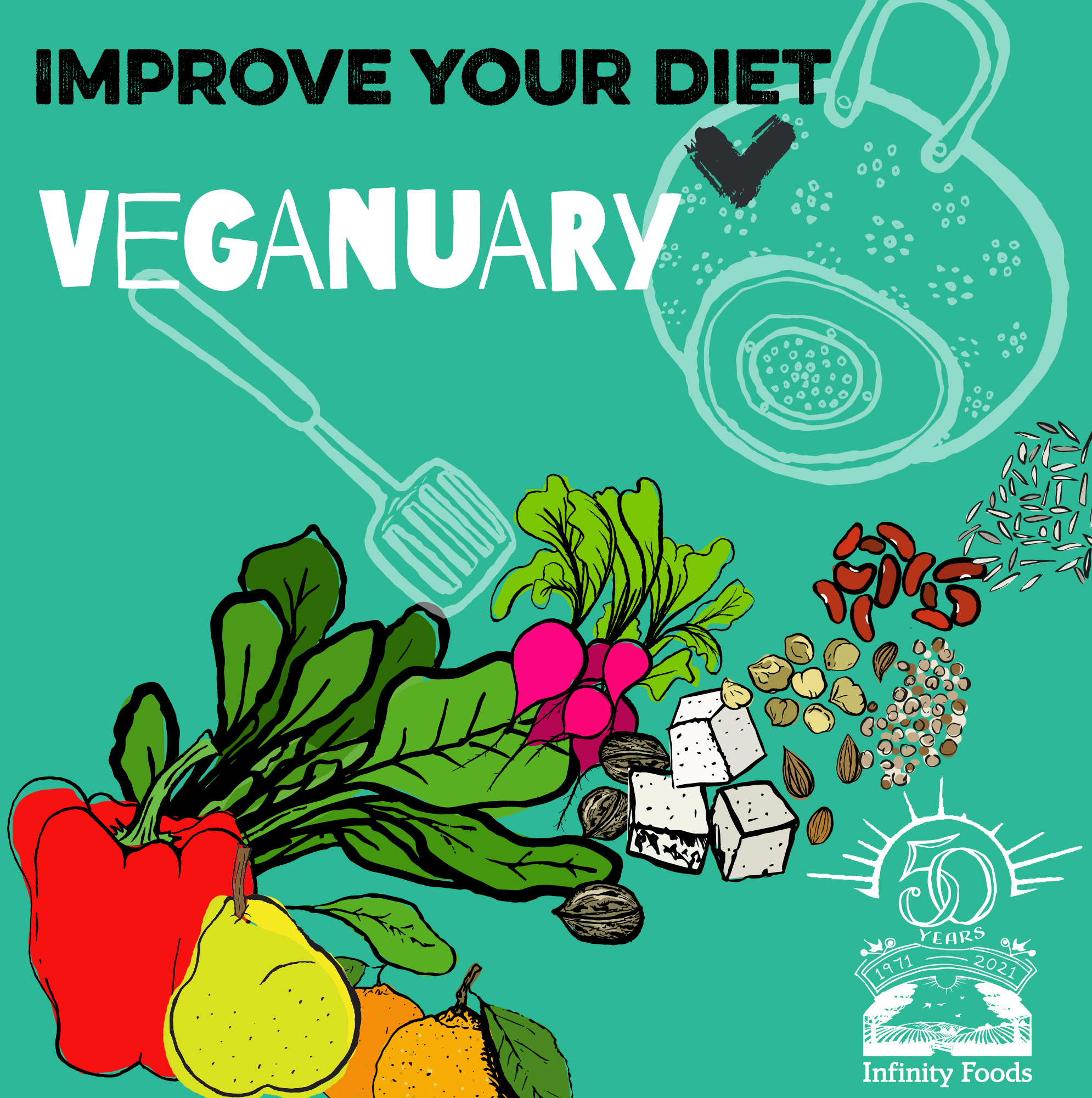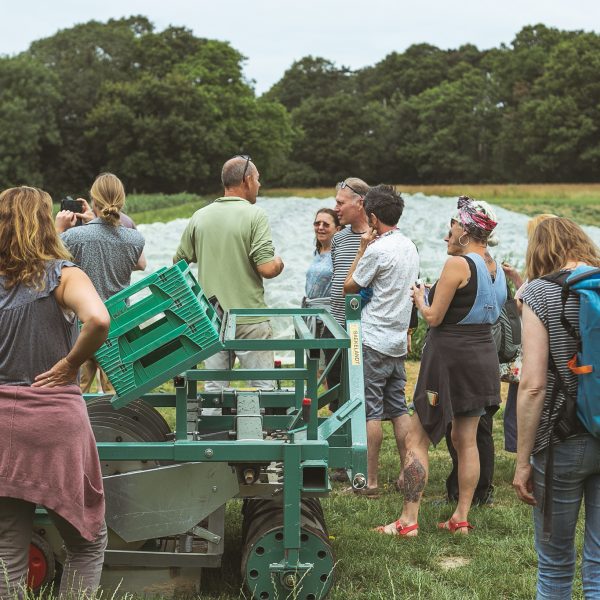The UK government has announced they will consider the use of biotechnology in England for the first time, this is due to the departure from the EU, ministers have said crops and livestock “could” be made to be more productive, so reducing costs to farmers and effects on the environment.
By current legal definition, gene editing is the same as genetic modification (GM). Now no longer answerable to EU regulation, the Department for the Environment, Farming and Rural Affairs (DEFRA) has moved swiftly to open conversations about the future of gene-editing technology in the UK, framing it as a “huge government priority and solution to so many of our problems”. DEFRA would like to see gene-editing deregulated from this GM status.
“Gene-editing plan ‘dark day’ for animal welfare and environment” say farming experts
Organic farmers and environmental experts have said editing will be bad for animal welfare and bad for efforts to curb greenhouse gases. The Soil Association (an organisation we are closely aligned with on policy) has been working for decades across the farming sector and with DEFRA to identify the problems in our food system and to outline what solutions needed. The Soil Associoation have said gene editing is a huge distraction to many of the farming lead actions they have been working on along with the agroecology movement.
Gene editing is framed as the solution to disease in crops and animals, but their use opens up to potential long term problems that are more than likely irreversible.
The introduction of gene editing will see farmers being ‘forced to use pesticides that could be damaging to the environment’ and vital wildlife populations. Allowing the genes in crops and farm animals to be altered would lead to greater farm animal suffering and would not address food waste. This also comes at the same time neonicotinoids, pesticides linked to declining bee populations has been planned to be used in sugarbeet farming (to find out more read our blog post here).
The science behind this consultation is not as clear-cut as it is being presented to be, which risks misleading citizens and farmers. The Soil Association has said they have serious concerns that gene editing is being presented as a ‘silver bullet’ when it can only be a ‘sticking plaster’ – diverting vital investment and attention from farmer-driven action and research for agroecology which could be yielding results, right now.
Speaking to the Independent, Peter Stevenson, the chief policy adviser at Compassion in World Farming, said “Traditional selective breeding has already pushed animals to fast growth and high yields, often with immense detrimental impacts on welfare. Meat chickens have been bred to grow so quickly that many suffer from painful leg disorders, while others succumb to heart disease. Stevenson added that this is a “dark day for animal welfare” and that he was very disturbed by Defra’s proposal which demonstrated “disjointed government thinking”.

This year a record-breaking 500,000 people have signed up to the Veganuary challenge to eat only plant-based foods for a month. It seems ridiculous that with a growing trend to eat a more plant-based diet for health, nutrition and environmentalism that the government wants to introduce gene editing, specifically to increase meat production and consumption, despite the very loud voices of scientists that are saying we need to reduce meat consumption to tackle climate change and reduce the growing rate of diseases, like heart disease and bowel cancer.
What is wrong with GM?
GM Freeze a leading organisation in the fight against the GMO movement explains the problems with the genetic engineering of crops and animals.
GM crops are patented so farmers are not in control. They cannot save seed and are locked into contracts with the multinational corporations that sell not just the seeds but also the weed killers they are designed to work alongside. Globally we produce enough food for at least 10 billion people – the predicted 2050 world population peak. People are hungry because they are poor and growing more GM does not help share the world’s resources more fairly, and the focus should be on reducing food waste, one of the priorities that The Soil Association has highlighted.
Research down by WRAP shows we now (2018) throw away 6.6 million tonnes of household food waste a year in the UK, compared to 8.1 million tonnes in 2007. Of the 6.6 million tonnes we throw away, almost three quarters (70% of the total) is food we could have eaten which equates to 4.5 million tonnes.
Most GM crops are designed to tolerate repeated spraying with a particular weed killer. Others produce their own toxin to poison insects. Weeds and insect pests are evolving resistance and the GM “solution” is crops designed to be sprayed with ever more pesticides.
Meanwhile, the biodiversity of our environment suffers. Beneficial insects like lacewings and ladybirds are harmed and as an example, the monarch butterfly has declined by 90% with studies laying the blame on GM farming.
Next month is the annual Seedy Sunday event in Brighton and Hove, the UK largest and oldest seed swap. which gives home growers an opportunity to store and swap seeds to increase seed security. The introduction of gene-engineered seed puts this all in jeopardy, to find out more read our blog on why Seedy Sunday is so important.
“We hear a lot about the potential for GM to solve global problems but you can’t fix the system one gene at a time. Resilience in an uncertain future relies on diversity, not GM monocultures.”
Fear not, you can trust us at Infinity Foods Co-operative to never sell non-organic fruits and vegetables and have a commitment to never stock gene-edited or GMO foods. Our fresh produce section and In-house-bakery are fully licensed by the Soil Association. You can rest assured we will always put your health and the health of our environment and planet first in all our sourcing decisions and stick to our values.
“You may be concerned that our food standards are under threat due to the future trade deals the UK may make after exiting the EU. Infinity Foods values do not sit at the peripheries of our Co-operative; for 50 years our values have always been at the core of our ethos, this is our bottom line and what motivates our Co-op both in the now and for the long-term. From the outset, Infinity Foods has been committed to providing an extensive range of high-quality natural & organic vegetarian foods. We will continue to advocate for the highest welfare for animal rights, worker rights and positive environmentally sound sourcing.” Infinity Foods Co-operative Ltd statement on the UK’s future trading
Find out more about how to get more involved in the organic movement with The Soil Association and to find out more on how to stop the introduction of GMOs in the UK visit GMFreeze.




